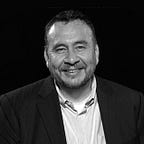In the week since the Pulse massacre in Orlando, Florida, we’ve seen an abundance of support for the LGBTQ community, not just nationally, but worldwide.
At times it’s been incredibly moving, with demonstrations of compassion from points on the political spectrum previously unheard.
Even better, we outsiders brought our A-game to the media, social and otherwise. Whether calling out the useless “thoughts and prayers” brigade in Congress or responding to Trump’s request to “ask the gays,” it’s been a great week of solidarity.
But, for a moment, can we just knock it off with the “love is love is love is love,” OMG-I’ve-got-to-see-Hamilton bullshit?
Homosexuality isn’t about love. It’s about sexual desire.
And, while sexual desire informs love, and vice versa, love is not what makes gays and lesbians and queer folk different from our heterosexual counterparts: Sexual attraction does.
Gay people don’t “love” differently than straight people. Like Shakespeare’s Shylock—and I’m quoting/paraphrasing here—doesn’t an LGBTQ person “eat the same food, get hurt with the same weapons, get sick with the same diseases, get healed by the same medicine, and warm up in summer and cool off in winter just like a (Single, White, Male and/or Female) Christian?”
Well, of course we do.
It’s the act of sexual intimacy that makes LGBTQ people different. But it’s also what makes a large number of straight people go batshit crazy.
What’s worse is they often pass that craziness down to their LGBTQ children. And while some survive and prosper, others — John Wayne Gacy, Jeffrey Dahmer, Aileen Wuornos, and now, it appears, Omar Mateen—lash out in the most horrific ways imaginable.
I’m confident there were dozens of young, vibrant, beautiful LGBTQ people at Pulse that Saturday night who were in love. But some were there probably just looking for love. And you know what? Some were just there looking to get laid.
And they died for that. They died for doing something that millions of heterosexual Americans were doing nationwide at a club, or a bar, or concert hall on a Saturday night somewhere in Middle America.
And there’s nothing wrong with wanting to get laid.
If anything maybe more Americans should be having sex—in or out of wedlock. It’s like that line from the film version of “Six Degrees of Separation,” when Will Smith’s character, Paul, tells Stockard Channing’s Ouisa his reason for bringing a gay prostitute back to her home in secret.
Under the illusion Paul was a college friend of their son, Ouisa and her husband, Flan, had welcomed this outsider—for the era, it was the early ‘90s—a young black male, into their bourgeois, Upper West Side Manhattan home. When Paul turns out not to be what he said he was, Ouisa confronts him about his betrayal and asks, why the lies? Why the hustler? Paul’s reply was simple:
“I was so happy I wanted to add sex to it. Don’t you do that?”
No, not a lot of people do.
The victims of the Pulse massacre didn’t die because a tormented bigot hated love; they died because he hated sex, specifically, homosexual sex.
As a gay man of a certain age who lived through the horrors of the initial years of the AIDS epidemic; who watched as friends and acquaintances died, literally, in droves, a generation of men killed in their prime, I also saw a government and a country filled with nothing more than disdain and contempt for my friends and I. Hours and hours of TV news and pages and pages of print column inches devoted to how immoral we were, how being sexual beings was our undoing. People forget, but this was when the “compassionate Conservative” myth was created, you know, piggybacking on the “hate the sin, love the sinner” bullshit.
Good times.
I believe in love. I may be cynical, but I’m not bitter. I’ve been blessed with the love of the same man for the last 16 years, despite all my flaws. But like this relationship, the two previous longterm commitments I had began with sex, plain and simple.
And there’s nothing wrong with that.
In the 1980s we used to die for having sex—from disease, from indifference—and now, despite the victories of gay marriage, of gays in the military, we can still die, not just for actually having sex, but for going to a club on a hot, humid Saturday night, wondering, and hoping, that we might get lucky, that we might make a new friend; that we might get laid.
And maybe, just maybe, that we might just fall in love.
